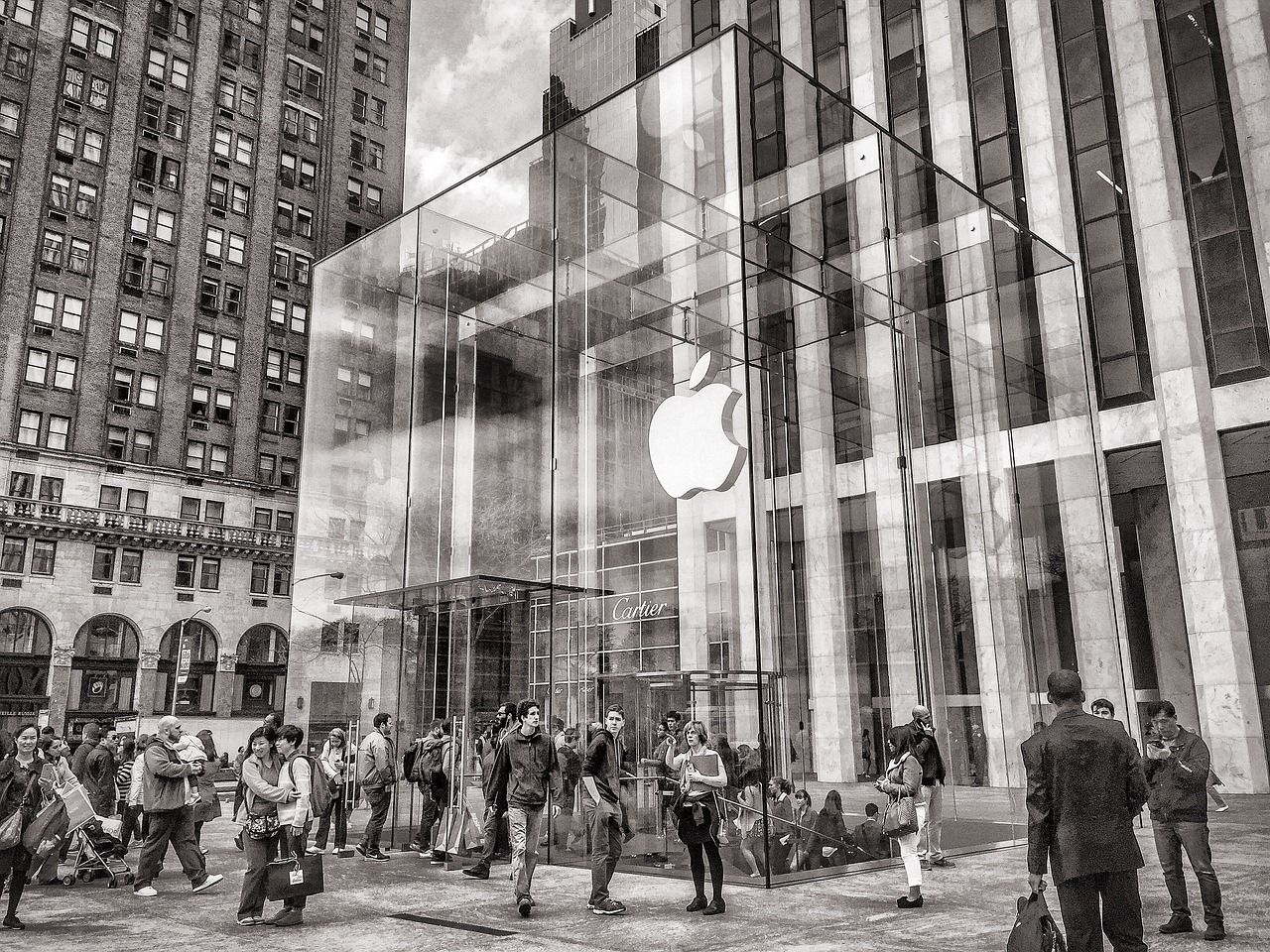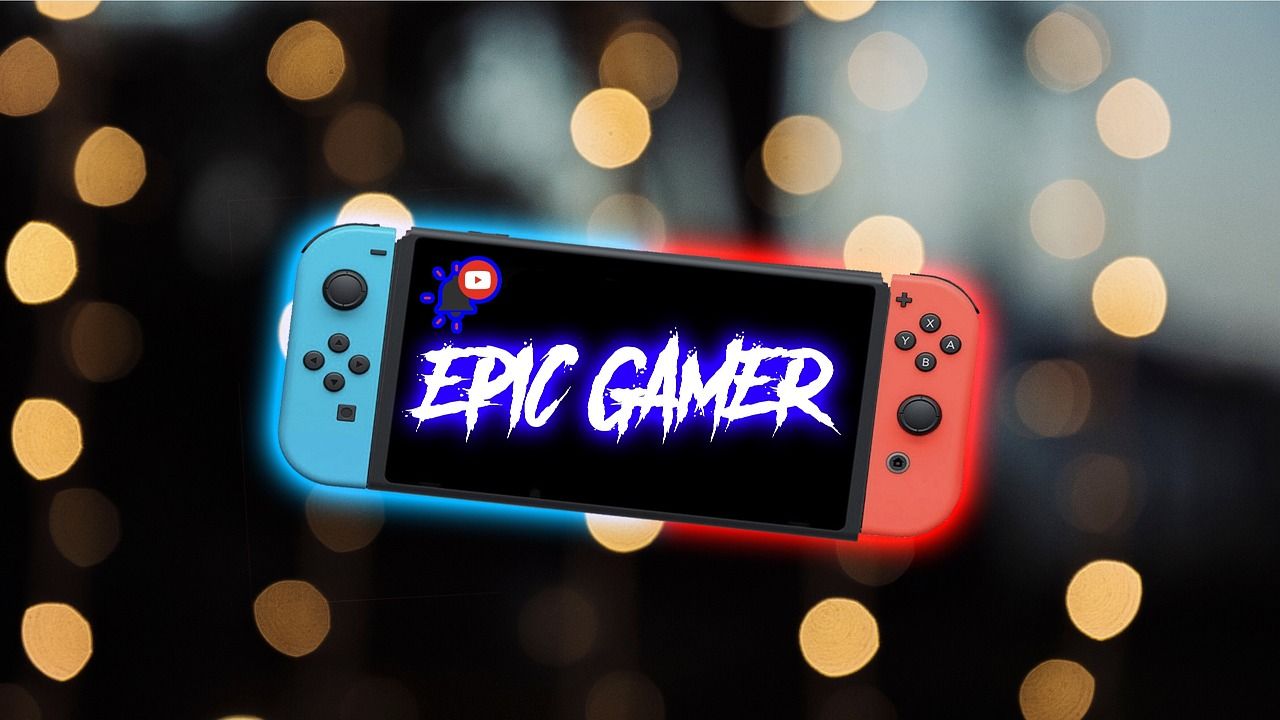The Intertwined History
Apple and Epic Games, two giants in the tech industry, have a complex relationship that spans over a decade. Their history is marked by both cooperation and conflict, showcasing the interdependence of major players in the digital ecosystem.
Apple, founded in 1976, revolutionized the mobile industry with the introduction of the iPhone in 2007 and the subsequent launch of the App Store in 2008. This platform became a crucial marketplace for software developers worldwide, including game developers like Epic Games.
Epic Games, established in 1991, gained massive popularity with titles like Unreal Tournament and Gears of War. However, it was the launch of Fortnite in 2017 that catapulted the company to new heights of success and brought it into closer contact and eventually conflict with Apple.

Image by a href from pixabay.com
The Symbiotic Relationship
Initially, the relationship between Apple and Epic Games was mutually beneficial. Apple's iOS platform provided Epic with access to millions of potential players, while Epic's games, particularly Fortnite, attracted users to Apple's devices and services.
Fortnite quickly became one of the most popular games on the App Store, generating substantial revenue for both companies. Apple took a 30% cut of all in-app purchases, a standard practice in the industry but one that would later become a point of contention.
This period of cooperation demonstrated how tech companies can thrive through partnerships, even as competitors in certain areas. However, as both companies grew and their business models evolved, tensions began to simmer beneath the surface.
The Seeds of Conflict
The first signs of strain in the relationship emerged as Epic Games began to challenge the traditional models of game distribution. In 2018, Epic launched its own PC game store, offering developers a more generous revenue split than other platforms, including Apple's App Store.
Epic's CEO, Tim Sweeney, became increasingly vocal about what he perceived as unfair practices in the mobile app ecosystem. He criticized the 30% fee charged by Apple and Google on their respective app stores, arguing that it was excessive and harmful to developers and consumers alike.

Image by ajouretravel from pixabay.com
These criticisms set the stage for a more direct confrontation, as Epic began to explore ways to circumvent Apple's payment systems and policies.
The Fortnite Incident
The simmering tensions boiled over in August 2020 when Epic Games implemented a direct payment option in the iOS version of Fortnite, allowing players to purchase in-game currency at a discount by bypassing Apple's payment system. This move was a clear violation of Apple's App Store guidelines.
Apple swiftly responded by removing Fortnite from the App Store, citing the violation of its policies. Google followed suit on its Play Store, setting the stage for a multi-front legal battle.
Epic Games was prepared for this response and immediately filed lawsuits against both Apple and Google, accusing them of anti-competitive practices. The company also launched a public relations campaign, including a parody of Apple's famous "1984" commercial, positioning itself as fighting for the rights of developers and consumers against what it portrayed as Apple's monopolistic practices.
The Legal Showdown
The lawsuit against Apple became the focal point of the conflict, with both sides presenting their cases in a high-profile trial in May 2021. The core issues at stake were:
- Whether Apple's control over the iOS ecosystem constituted a monopoly
- The legitimacy of Apple's 30% commission on in-app purchases
- The question of whether developers should be allowed to use alternative payment systems
Epic argued that Apple's practices were anti-competitive and harmful to developers and consumers. Apple countered that its policies were necessary for maintaining the security and quality of the App Store ecosystem.
The trial featured testimony from high-ranking executives of both companies, including Tim Cook of Apple and Tim Sweeney of Epic Games. It also brought to light internal documents and communications that provided insight into the strategies and motivations of both companies.
The Verdict and Its Implications
In September 2021, Judge Yvonne Gonzalez Rogers issued a ruling that was a mixed outcome for both parties:
- The court did not find Apple to be a monopolist under federal or state antitrust laws.
- However, it ruled that Apple's anti-steering provisions (preventing developers from informing users about alternative payment methods) violated California's Unfair Competition Law.
- The judge issued an injunction requiring Apple to allow developers to include links to external payment systems.

Image by firmbee from pixabay.com
This ruling had significant implications for the broader tech industry, potentially opening the door for changes in how app stores operate and how developers can interact with their customers.
Aftermath and Appeals
Neither party was fully satisfied with the verdict, and both filed appeals. Apple sought to delay the implementation of the court-ordered changes to its App Store policies, while Epic appealed the ruling that Apple was not a monopolist.
The legal battle continued into 2022 and 2023, with various developments:
- Apple was granted a stay on the injunction, allowing it to maintain its current App Store policies while the appeals process played out.
- Epic Games faced challenges in other jurisdictions, including a lawsuit against Google that went to trial in late 2023.
- The case attracted attention from regulators and lawmakers worldwide, contributing to broader discussions about app store policies and digital marketplace regulations.
Recent Developments and Current Status
As of early 2024, the situation continues to evolve:
- Apple has made some concessions, including reducing its commission to 15% for small developers and allowing certain types of apps to link to external websites for payments.
- Epic Games has continued its campaign against what it sees as unfair practices in the mobile app ecosystem, both through legal channels and public advocacy.
- The broader tech industry has been impacted, with other companies and regulators closely watching the outcomes of these disputes.
While Fortnite remains unavailable on the iOS App Store, Epic has explored alternative distribution methods, including cloud gaming services that can be accessed through web browsers on iOS devices.
Determining a clear "winner" in this ongoing conflict is challenging, as both companies have experienced both victories and setbacks:
Apple:
- Maintained control over its App Store policies
- Avoided being labeled a monopolist by the court
- Faced increased scrutiny and potential regulatory challenges
Epic Games:
- Raised awareness about app store practices
- Gained support from some developers and consumers
- Lost access to the iOS platform for Fortnite, impacting its revenue
Both companies have had to make compromises. Apple has adjusted some of its policies, while Epic has had to find alternative ways to reach iOS users. The true long-term impact of this conflict may not be fully apparent for years to come.
The Future of App Ecosystems
The Epic Games vs Apple conflict has highlighted key issues in the digital marketplace, including:
- The balance of power between platform owners and developers
- The role of commissions in funding platform development and maintenance
- The importance of user choice and market competition
As technology continues to evolve, these issues are likely to remain at the forefront of discussions about digital marketplaces and app ecosystems. The outcome of this ongoing dispute may shape the future of how apps are distributed and monetized, potentially leading to more open and competitive digital marketplaces.
The Epic Games vs Apple saga serves as a reminder of the complex interdependencies in the tech industry and the challenges of balancing innovation, security, and fair competition in the digital age. As consumers and industry observers, we can expect to see continued developments in this space, with potential impacts on how we access and use digital content and services in the future.








